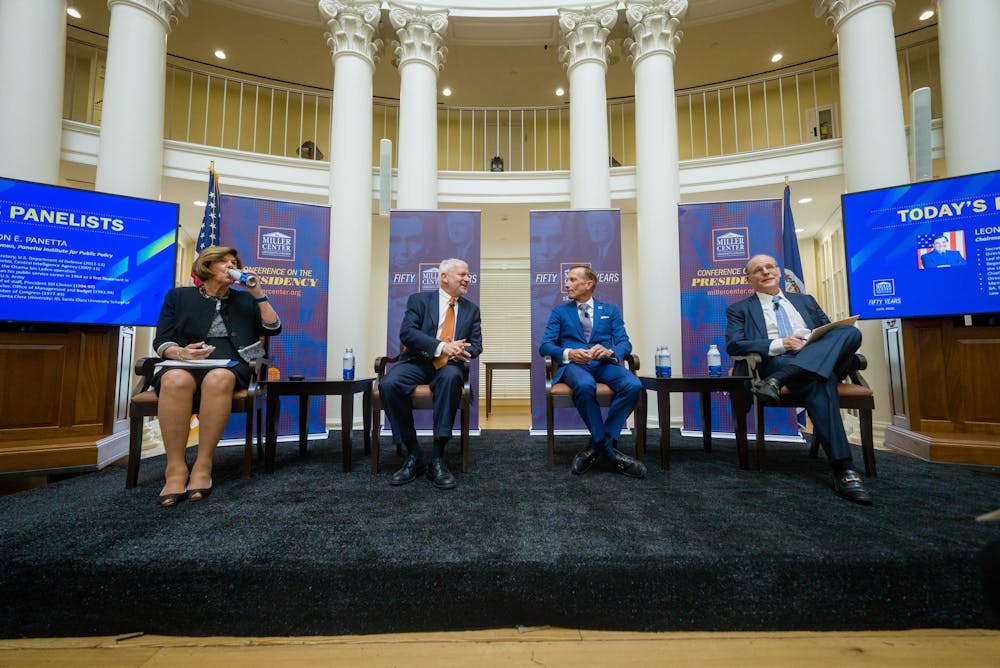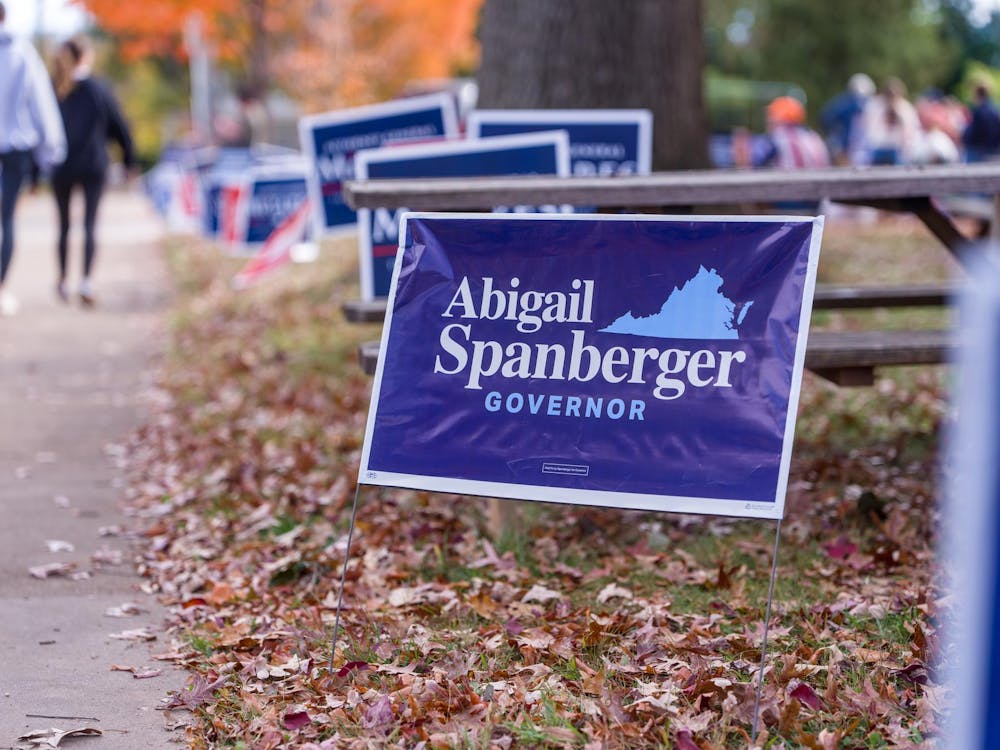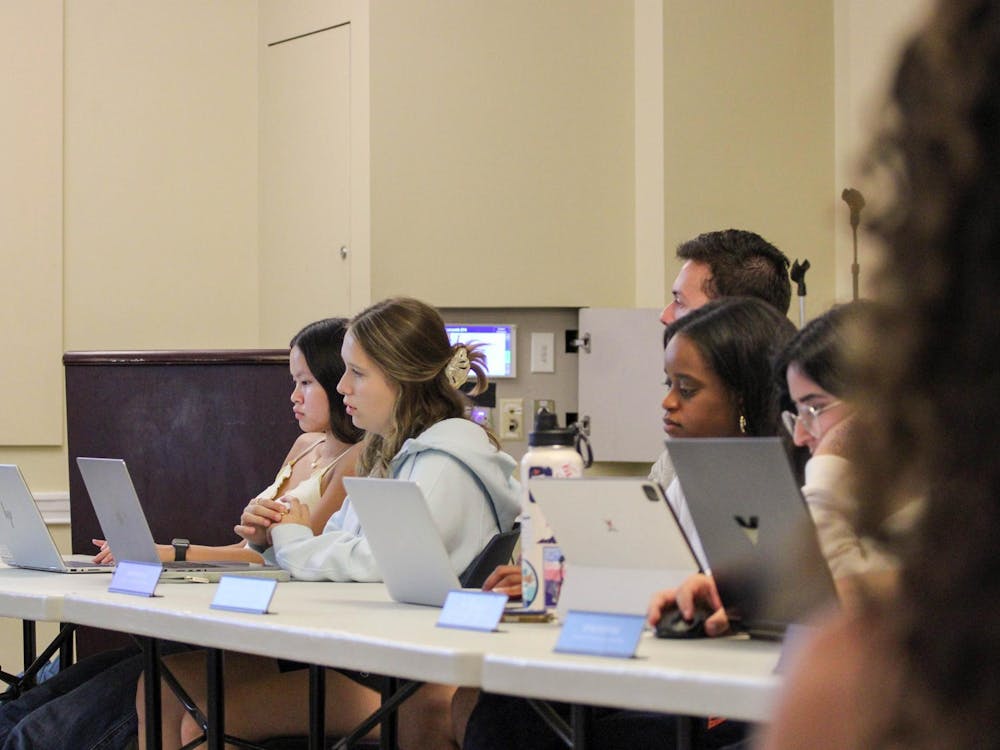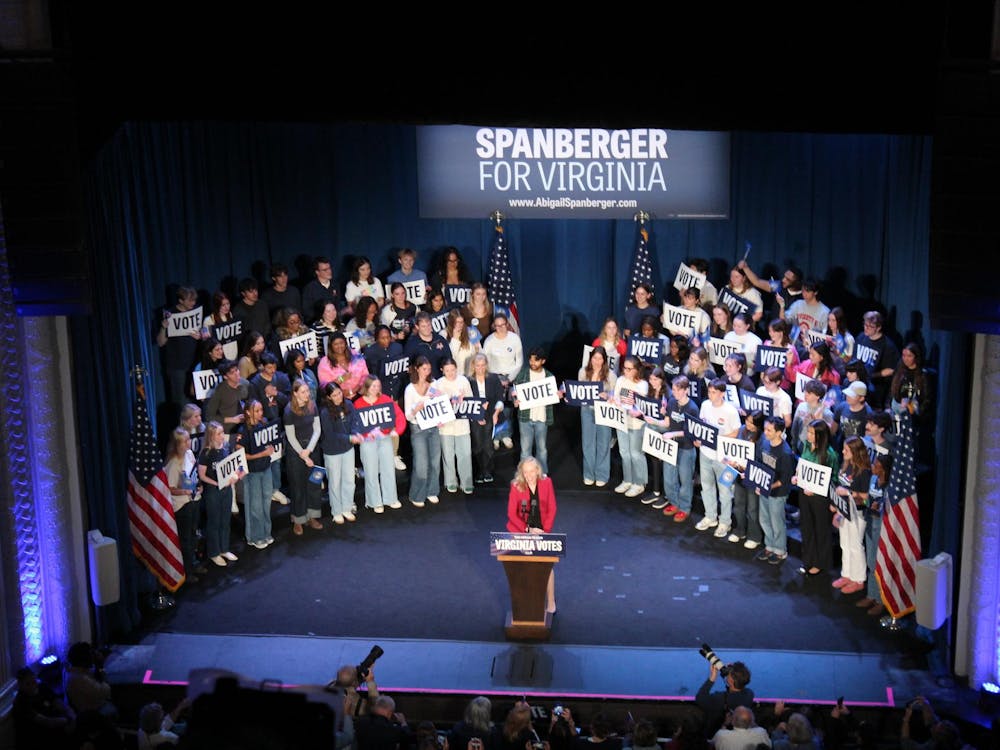The Miller Center hosted a Conference on the American Presidency this past week, marking the organization’s 50th year of promoting nonpartisan civil discourse. As part of the two-day event, Wednesday evening featured two panels of former senior government officials who spoke on landmark moments of success during their respective presidencies.
In the Dome Room of the Rotunda, faculty, staff, community members and students gathered to hear first-hand accounts of the triumphs in recent presidencies. The discussions highlighted former President George W. Bush’s launch of the President’s Emergency Plan for AIDS Relief and former President Barack Obama’s decision to authorize the raid that killed Al-Qaeda leader Osama bin Laden.
The first panel featured former Chief of Staff Joshua Bolten, principal architect of PEPFAR Mark Dybul and Peter Wehner, former Director of the White House Office of Strategic Initiatives. As they reflected on their time in the White House under former President Bush, the panelists shared the story of PEPFAR, from its conception to its implementation as the largest global health initiative ever undertaken by the United States. This part of the talk was moderated by Ann Compton, a retired reporter for ABC News.
Bolten gave his own advice about presidential policy-making from his experience with PEPFAR and other Bush projects. The former Chief of Staff was tasked with managing the White House, and ensuring that ambitious initiatives like PEPFAR were executed effectively.
“This is true for everybody in every administration, and that is to always ask hard questions, to insist on metrics, and be willing to provide power to the people in your administration who are holding you accountable,” Bolten said. “Resist happy talk and make sure that you're rigorously empirical.”
The panel addressed the contentious nature of foreign intervention in past and current administrations. They said that the United States has a duty to commit its support to countries who are working to improve. It was also important to the panelists that the idea of foreign aid is entirely reframed.
“I hate the word aid. Aid means you're doing something for someone,” Dybul said. “That's not what this has been about. It's about them, always has been. They’re the ones that came up with the solution.”
The second stage of the talk included dialogue about what the future looks like for international relations. Citing their own success, the panel urged current and future decision-makers to find connections on the international stage. They professed to the audience that solutions to the world’s problems are in the relationships we make with other nations.
“We need to be involved in much deeper, much deeper, partnerships all over the world. So, we should be thinking as broadly as possible, not in a narrow way,” Dybul said. “The venn diagram between climate change, food security, water security and health is tiny. Why can't we promise solutions that fit all of them?”
Before closing out their discussion, the panelists took questions from students in the audience and extended encouragement to the next generation of leaders. One student asked about the changing nature of policy-making and civil participation. Dybul answered by acknowledging that things are different, but reminded students that their role in shaping the future remains vital.
“The problem is young people are disengaging from the policy structures because we don't respond to them in the same way anymore, and the messaging that's worked for us is not going to work for you all,” Dybul said. “So you all have to figure out, what does the future look like, what is the future you want? And how are you going to make that happen?”
After a brief break, the second panel was introduced, moderated by Dasha Burns, White House Bureau Chief for Politico. It featured former National Security Advisor Thomas Donilon, Leon Panetta, former Director of the CIA and William McRaven, former Commander of the United States Special Operations Command. These three men were major players in the successful mission to eliminate Osama Bin Laden.
Panetta was also able to comment on former President Barack Obama’s role in authorizing, planning and executing the strike.
“He was a president who was deeply involved in the briefings. He was involved in all of the sessions that we had, and he was deeply involved in the National Security Council when we talked about the various options, the military options, that we had put together, and throughout them, the President wanted to know,” Panetta said.
Each of the panelists spent several years in government, working for different administrations. McRaven advised both Bush and Obama on national security issues following the events of 9/11. He explained that working with the two presidents, from either side of the aisle, was not as different as people may think.
“Having sat in the situation room a number of times with President Bush, as different as you would think Obama and Bush were, I found that inside the situation room, they were very similar,” McRaven said. “Both presidents were terrific about challenging their staff, their national security staff, asking for our views.”
As Commander of SOCOM, McRaven was the sole military leader involved in planning the mission for a majority of the process. He explained that there were more than a hundred phases in the operation, from arriving at the airfield to touching back down.
After wrapping up their discussion on the mission itself, the panelists moved to a conversation on processes within the presidency. They urged leaders to focus on protecting the structures of policy-making. Donilon described the fragile nature of these processes, and the special importance they have.
“If you don't have the right influence, if you don't have the right due process, if the President's not getting unmarked advice, the ability to debate, disagree with him, if you don't do away with cognitive biases and group thinking … at these stakes, you're going to make mistakes,” Donilon said.
Fourth-year College student Andriy Vretsona, who attended the event, said that this part of the talk was especially memorable.
“I think it stuck with me, just how in both panels, there is this very important talk about the process and how that's something that we don't talk about a lot,” Vretsona said. “Because we often talk about the result, but it's the process that got there that we should emphasize more and something we should focus on.”
Vretsona also shared positive thoughts on the event as a whole and on the Miller Center’s role on Grounds.
“I think it's what the Miller Center does best, is bringing together people who can talk about the good, the bad, the ugly and the future,” Vretsona said.
The Miller Center will continue its 50th anniversary programming with an event early next month revisiting the Bush presidency. The rest of the upcoming events for October are listed on the Miller Center official webpage, along with a full-length recording of this event.







